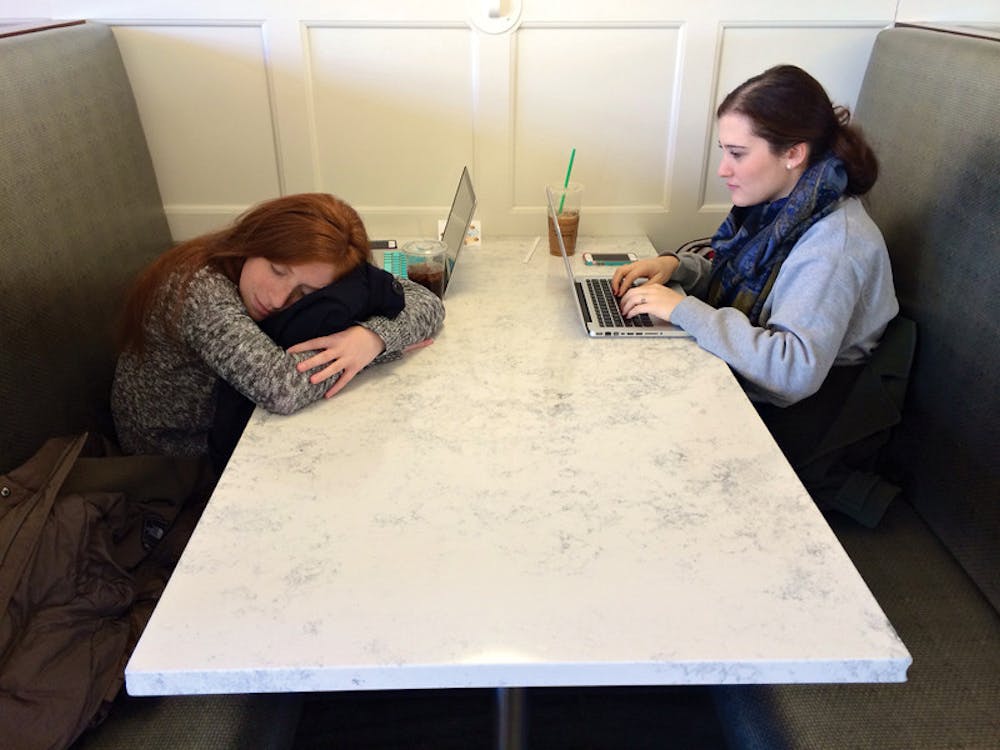New University research reinforces current recommendations from the American Academy of Pediatrics that suggest middle and high schools should not start classes prior to 8:30 a.m. The research reveals that older adolescents are more likely to go to sleep later than younger ones, but do not wake up significantly later in the morning. This was the first study to examine the trend with the same teenagers over time rather than a different sample at every age.
The study, which was published in the journal PLOS ONE this month, measured behavioral and biological markers of sleep, collecting sleep diaries and data from subjects’ activity monitors, as well as saliva samples that demonstrate melatonin release. The brain releases melatonin upon ideal bedtime and only in the absence of light — a useful circadian marker for the best adolescent sleep onset, said Stephanie Crowley PhD’09, an assistant professor in behavior sciences at Rush University Medical Center in Chicago, who was the lead author of the study and conducted the relevant research while a graduate student and post-doctoral fellow at Brown.
The research shows that as the participants grew older, their melatonin release occurred later. In addition, the participants resisted their melatonin signal for a longer period of time, staying up long past their body’s ideal time likely due to academic demands, social interactions and the freedom that comes from the lack of parent-mandated bedtimes, Crowley said.
The results demonstrate that early school start times are “robbing these kids of the sleep that they need, and that’s so ironic because, as a nation, we invest such huge resources in trying to educate children and then we undermine that ability to do so by degrading the very brain function that is critical,” said Charles Czeisler, a professor of sleep medicine at Harvard Medical School who was not involved in the study. “I think that this is a foundational study that is going to have a major impact on the field.”
“For us, (it’s) an interesting and important finding and a way to put together this two-process model of sleep regulation with this motivational and behavioral change,” said Mary Carskadon, professor of psychiatry and human behavior and the senior researcher on the project.
The biggest surprise of the study, Crowley said, comes in the individual variability the data reveals. Previous studies have examined the issue latitudinally — testing adolescents of different ages at the same time — whereas this study followed two groups, each for two and a half years. The first group began at around age 10 and the other at around age 15, with researchers monitoring the adolescents’ individual sleep patterns. The scientists then compared results of individuals within groups to track variability, as well as results between groups to analyze maturation trends.
Crowley and Carskadon will likely each study the variability separately in their own future works, examining what biological factors make one student more vulnerable to sleep shift while others are more able to reliably listen to their circadian markers.
Crowley explained the AAP policy recommendation for later start times at schools may not go into place, despite the push from the AAP, because competing interest groups prioritize different things. Administrators worry about money because moving start times later will make staggering buses throughout a district — a common way to save money — more difficult, while parents want their children to partake in sports and extracurricular activities that are often more difficult to do in the dark.
“I think everyone is out for the same reason — we want to make sure teenagers are getting their academic needs” and other needs met, Crowley said. “But we all look at it in a different way and with different priorities.”
Despite the possibility that this study or others may not inspire policy changes, Crowley and Carskadon will continue to study sleep. “Sleep is the center of life. Think of another behavior we all do every day,” Carskadon said. “It’s our anchor behavior. We spend more time doing that one single behavior than anything else. And it’s not just a behavior — it’s fraught with all sorts of biological activity” like memory retention and metabolic processes.
“You can study any field, certainly in biology and medicine, and sleep has something to do with it,” she added.

ADVERTISEMENT
More




